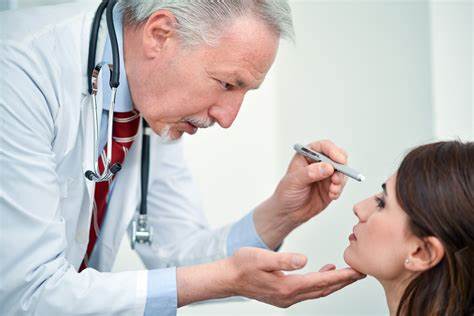Getting a black eye can be an unpleasant experience. It often comes with pain, swelling, and discoloration of the skin around the eye. The good news is that there are several things you can do to get rid of a black eye and speed up the healing process. In this article, we will provide you with a comprehensive guide on how to get rid of a black eye, including common causes, symptoms, treatments, and prevention tips.
Understanding Black Eyes
A black eye is a bruise that occurs around the eye due to a blow or trauma to the area. The skin around the eye is very delicate, and even a slight injury can cause a black eye. The force of the impact causes blood vessels beneath the skin to rupture and leak blood, which accumulates in the surrounding tissue, causing the skin to appear black and blue.
Common Causes of Black Eyes
Black eyes can result from a variety of causes, including sports injuries, car accidents, falls, and physical assault. Some medical conditions, such as sinus infections or dental abscesses, can also cause black eyes. People taking blood-thinning medications are also more susceptible to developing black eyes.
Symptoms of Black Eyes
The most obvious symptom of a black eye is the discoloration of the skin around the eye. Other symptoms may include pain, swelling, blurred vision, and difficulty moving the eye. In severe cases, a black eye may be accompanied by a concussion or other head injury.
How to Get Rid of a Black Eye
While there is no one-size-fits-all approach to treating a black eye, there are several things you can do to promote healing and reduce swelling and pain:
a. Ice the Affected Area: Applying ice to the affected area can help reduce swelling and pain. Wrap a bag of ice in a clean towel and apply it to the eye for 15-20 minutes every hour for the first 24 hours.
b. Use Warm Compresses: After the first 24 hours, you can use warm compresses to promote blood flow and reduce swelling. Soak a clean towel in warm water and apply it to the eye for 10-15 minutes, three times a day.
c. Take Pain Medication: Over-the-counter pain medication, such as acetaminophen or ibuprofen, can help relieve pain and reduce swelling.
d. Rest: Resting and avoiding strenuous activities can help promote healing and reduce the risk of further injury.
e. Elevate Your Head: Sleeping with your head elevated can help reduce swelling and promote drainage of excess fluid.
Prevention Tips
While black eyes are not always preventable, there are several things you can do to reduce your risk of getting one:
a. Wear Protective Gear: If you engage in sports or other physical activities, wear appropriate protective gear, such as helmets, goggles, and face shields.
b. Avoid Altercations: Avoid physical altercations and take steps to de-escalate any potential conflicts.
c. Address Medical Conditions: Address any underlying medical conditions, such as sinus infections or dental abscesses, that may increase your risk of developing a black eye.
d. Be Cautious with Medications: Be cautious when taking blood-thinning medications and follow your doctor’s instructions closely.
Conclusion:
A black eye can be caused by a variety of injuries. Fortunately, there are a variety of treatment options to reduce swelling and get rid of a black eye. These include cold compresses, over-the-counter medications, and even home remedies.
FAQs:
Q1. How long does it take to get rid of a black eye?
Answer: The length of time it takes to get rid of a black eye depends on the severity of the injury. Generally, it takes anywhere from 3 to 10 days for a black eye to heal.
Q2. Are there any risks associated with treating a black eye?
Answer: There are no serious risks associated with treating a black eye. However, it is important to speak to a doctor before taking any over-the-counter medications.
Q3. Is it possible to prevent a black eye?
Answer: Yes, it is possible to prevent a black eye. Wearing protective eyewear while engaging in activities with a high risk of injury can help reduce the risk of a black eye. Additionally, taking steps to reduce stress and getting enough sleep can help reduce the risk of accidentally injuring yourself.
Khalid Irfan is a Fitness expert who enjoys spending time in gym. He also enjoys being in the outdoors and exploring new opportunities whenever they arise as well as researching new topics to expand his horizons.

